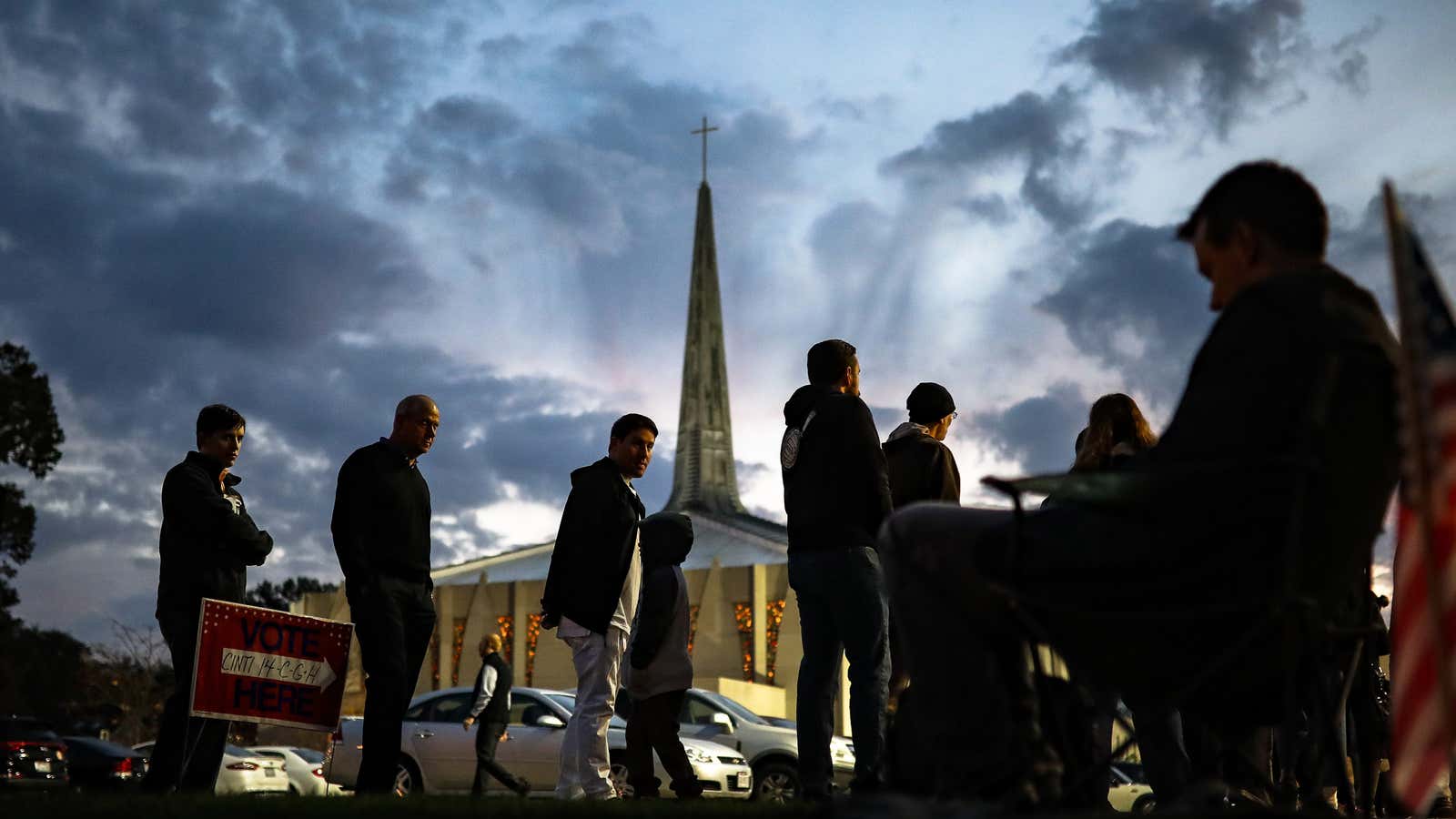For Walt Whitman, America’s beauty lies not in its rolling hills, but its polling booths. Over 100 years ago, the great American poet celebrated this momentous day of choosing with “Election Day, November, 1884.” The poem, which appears in an annex of Leaves of Grass, still resonates today as a reminder of the nation’s ideals of a peaceful democratic process.
If I should need to name, O Western World, your powerfulest scene and show,
’Twould not be you, Niagara—nor you, ye limitless prairies—nor your huge rifts of canyons, Colorado,
Nor you, Yosemite—nor Yellowstone, with all its spasmic geyser-loops ascending to the skies, appearing and disappearing,
Nor Oregon’s white cones—nor Huron’s belt of mighty lakes—nor Mississippi’s stream:
—This seething hemisphere’s humanity, as now, I’d name— the still small voice vibrating—America’s choosing day,
(The heart of it not in the chosen—the act itself the main, the quadriennial choosing,)
The stretch of North and South arous’d—sea-board and inland —Texas to Maine—the Prairie States—Vermont, Virginia, California,
The final ballot-shower from East to West—the paradox and conflict,
The countless snow-flakes falling—(a swordless conflict,
Yet more than all Rome’s wars of old, or modern Napoleon’s:) the peaceful choice of all,
Or good or ill humanity—welcoming the darker odds, the dross:
—Foams and ferments the wine? it serves to purify—while the heart pants, life glows:
These stormy gusts and winds waft precious ships,
Swell’d Washington’s, Jefferson’s, Lincoln’s sails.
In the poem, Whitman praises not the person we elect but the “quadriennial choosing,” the act of voting. He did however hold strong political views and wrote the poem to commemorate the election of Grover Cleveland after a particularly mudslinging election. It’s worth keeping in mind that though he sings to the “still small voice vibrating,” the poet was ambivalent on abolition and the right for African-Americans to vote.
